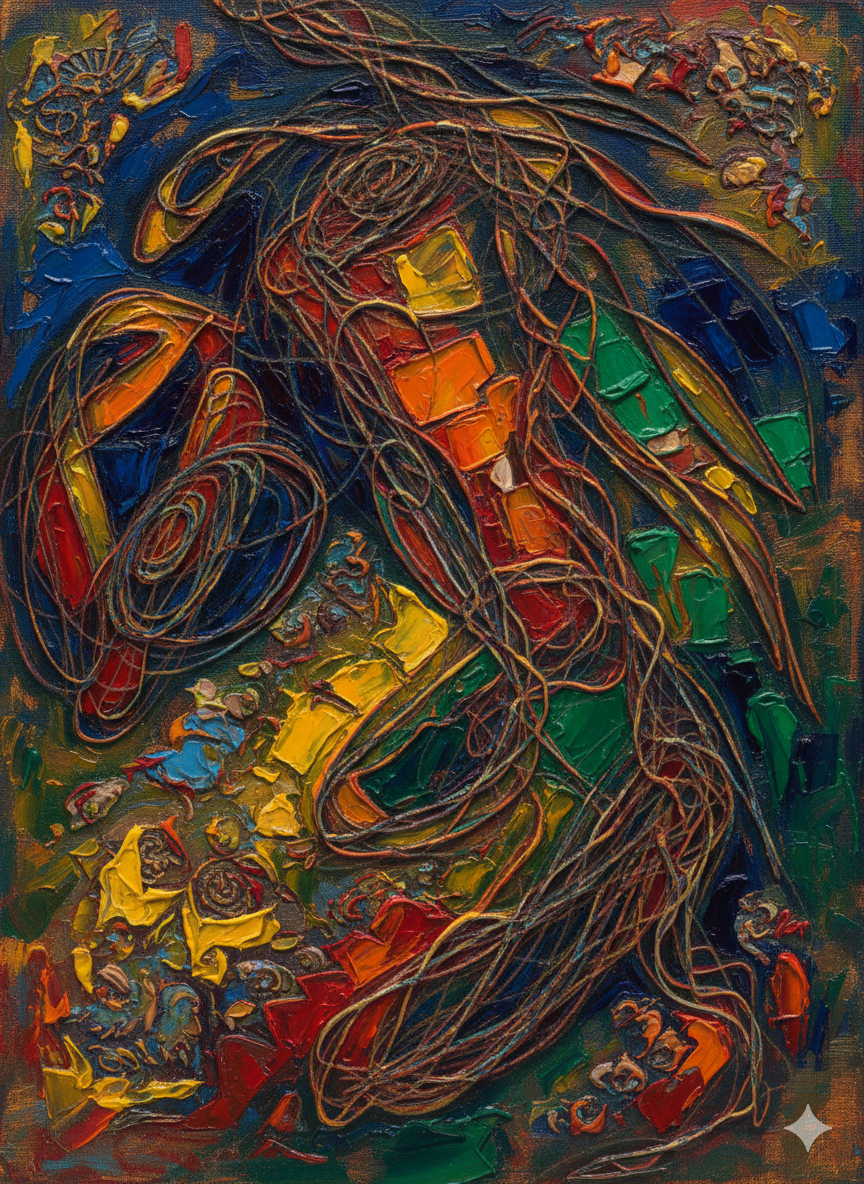I'm still alive
9/15/2025

I am keeping a small ledger of ordinary miracles. Not the cathedral kind — the petty, grubby ones that smell faintly of tea-leaves and boiled milk and the old wooden plank of the kitchen table. I write them down the way a miser counts coins: because when the sky inside my head is grey enough to conceal the horizon, the only proof that the sun exists is that I can still make a cup of tea.
Today I made tea. That’s the sentence. It looks laughable on the page. It should be a trivial thing, the kind of domesticated motion humans do without thinking — but for me, and for a lot of people who move through the world with depression like a second weather system, it is a proclamation. To boil water, to find the tin with tea leaves, to resist the gravity of staying horizontal and inert: this is a tiny rebellion. It is a hand-pressed stamp on an otherwise blank day that reads: I am not extinguished.
When I can sit upright long enough to diarize—scratch the teeth of a sentence onto a blog, not a grand essay but a raw line of what-it-felt-like—then I know something like continuity survives me. When I can sketch a grotesquerie, grotesque being the polite word for the half-formed faces that live in the corners of my skull, it is because a filament of curiosity is still warm. Drawing those ugly, stubborn things is less about prettifying the world and more about pulling a loose thread so the whole sweater does not unravel. There is a relief in making the inner chaos look back at you on paper and say, yes, you still have hands.
Sometimes survival looks like reading a book about science until the sentences tangle my brain in their particular, exhilarating logic. The kind of logic that insists, against the human tendency to invent meaning from noise, that hypotheses must be tested, that measurements matter, that the universe is not impressed by our personal narratives. Watching a science documentary is like being gently reprimanded by reality — and for reasons I can’t explain, that reprimand comforts me. It says: things behave as they behave whether you are present to witness them or not. Your small joys and your shattering griefs exist in a world that does not conspire to make you suffer; the universe is indifferent, which is sometimes the only neutral ground you need to rest on.
I do not mean this to be a motivational poster. I am not promising a blueprint that will pull anyone else out of their dark well. What I am handing over — messy and uncensored — is inventory. A list of items that, when collected, point to a life that endures, even if endurance is only a long series of tiny refusals to disappear.
This is how the ledger reads on a good enough day: I got up. I boiled water. I held the cup between my palms until the warmth routed the chill out of my bones. I wrote a sentence that did not self-censor. I let the grotesque in my head have a place on paper. I watched a science film and felt my neurons fire in friendly ways. I read a paragraph and did not fall asleep before the line ended.
Each entry is a postage stamp: small, rectangular, mundane. Fold them together and you have a booklet of reasons to wake up tomorrow. That is the economy of recovery. It does not require heroism. It asks only consistency: the same way a river shapes stone by insistently passing over it, the repetition of small acts changes the landscape of a life.
I live in Calcutta and that detail matters because it colors the texture of these rituals: the way the tea tastes, the cadence of the monsoon memory, the particular domesticities that anchor me. There is a cultural grammar to survival too—ways of telling it that are familial, linguistic, and stubbornly regional. Mentioning Calcutta is not decorative. It is locational honesty: this is where my small resistances happen, in this clatter and clime, and that matters.
If you are reading this and you carry your own ledger, I am not here to prescribe. Take whatever is salvageable. If your list is different, fine. If your survival note is that you watered a plant or picked up a phone and answered it, that is sufficient. There is valor in the mundane. There is philosophy in the ritual of making tea. There is science in the act of noticing.
I will not tidy these sentences into a moral. I will not put a bow on the pain and call it a lesson. I will only say, with as much quiet force as I can muster: today I made tea, and that is proof I am alive. Tomorrow I will try to make it again. The ledger will keep growing, unglamorous and true.